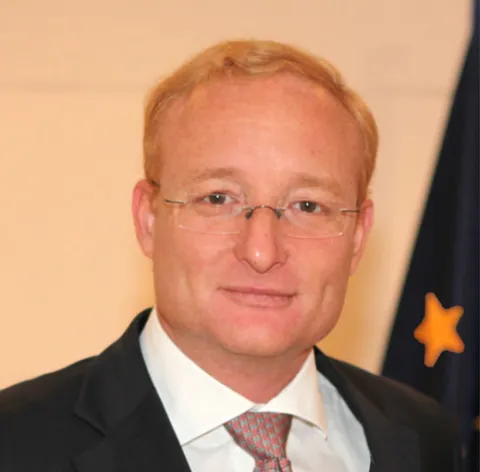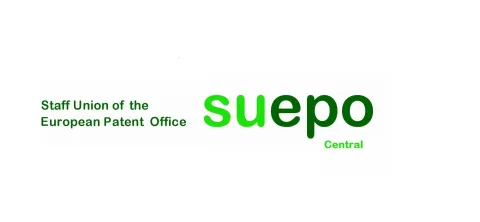No strike, little progress in restoring social peace at the European Patent Office
June 24, 2019
A strike at the EPO, which was to be held during the meeting of the Administrative Council in Munich later this week, has been called off.
The EPO’s trade union SUEPO had submitted a call for a strike, which would have been the first one since Campinos took office last year, ‘after a rather disappointing meeting with the President on 16 May’. But according to SUEPO, the ‘call for strike – and no doubt also the letter from FICSA and the resolution unanimously adopted at the recent USF Congress – seems to have focused senior management´s minds.’

The SUEPO gave ‘a brief overview of the commitments/statements made by Mr Campinos, for each of the points mentioned in the call for strike, irrespective of how we actually assess them (e.g. positive, insufficient, negative):
- Fair settlement for all SUEPO Officials/staff representatives abusively sanctioned by the Battistelli administration ➢ The President intends to start a new approach (apparently involving an external mediator), addressing the open cases first. No commitment was made with respect to the consideration of the status quo ante or the necessity to find an urgent solution.
- Fair reporting, instead of artificially underrating hundreds of colleagues "far below expectations" ➢ Communiqué was published to reassure staff that an incompetence procedure is not automatically triggered by a "far below" assessment, but is and remains a highly exceptional procedure. Additionally, commitment to continuing meetings and negotiations with CSC and SUEPO to arrive at an unambiguous regulation on the implementation of Article 52 ServRegs.
- Respect for staff instead of threat of incompetence procedures ➢ See above + A dedicated meeting will be organised with VP1, geared specifically at production pressure and CQI.
- Fair career progression for everyone, no managerial arbitrariness ➢ Our proposal to align the 2019 budget envelope for pensionable rewards in the Rewards Guidelines (EUR 10.8m) to the one of about EUR 12.8m contained in CA/D 1/181 will not be followed. For next year the reward envelope will be reevaluated. ➢ The President stated that – from next year onwards – the presence of staff representatives in the Harmonisation Committee should no longer be taboo. ➢ Putting into place transitional measures for the past from old to new career system: Staff representation was asked to table a proposal in writing.
- People-oriented management, instead of management by fear ➢ Confirmation by President that – unlike what has happened in the IT area (now “BIT”) – there will be no change of management in HR 2 (…) ➢ President will consider whether staff matters should feature more prominently in his Strategic Plan
- Fair assessment of the financial situation, no pension reform based on a heavily biased study ➢ The President published his commitment not to trick staff with a sudden launch of a pension reform, should one be needed. (…)
- Fair salary and pension adjustment procedure for the coming years, no erosion of purchasing power ➢ President stated that any future salary method should protect staff and pensioners from inflation. (…)
SUEPO letter to EPO president and Administrative Council

In the letter, the SUEPO also criticizes the way in which Campinos expressed himself about pending cases of sanctioned union and staff representatives. Although last year the Administrative Tribunal of the ILO reversed dismissals and downgrading of three SUEPO leaders by former EPO president Battistelli, this has not led to quick actions by Campinos in similarly questionable cases: ‘You wrote: “[T]he office cannot accept any terms of settlement especially where demands involve excessively high financial compensation”. (sic)’ According to the SUEPO, ‘[t]his statement is highly disingenuous. The individuals in question only ask what is owed to them, to restore the status quo ante: nothing more. What is owed may now be substantial, but by no means excessive.’
EPO president António Campinos came in charge in July 2018 and said listening to the staff would be a high priority for him. Disappointingly to many, this has not led to important changes nor a better social climate. A recent internal survey showed EPO staff has a very negative view of management effectiveness, low confidence in senior management decisions and lack of clarity about direction. Alarming and ominous as well: only 39 percent of staff member think they are treated with respect.
It is not clear whether the dismal EPO staff survey, the situation of dismissed staff representatives and/or social tensions more in general will be discussed during the AC meeting on 26 and 27 June in Munich. In the past the Administrative Council has often been criticized for failing to control the presidency’s policy and actions.
You may also like















No Justice at EPO
It is incomprehensible that Mr Campinos act in this way. Why does he endorse the mad actions of his predecessor? Why does he protect top managers who acted illegally and de facto maintains injustice to those who have suffered from their actions? Not only the sanctioned staff reps but the entire EPO structure is maintained under far too high production pressure, fear of retaliation and thus chronical stress. He is a lawyer by training. Why does he do at the EPO what he could never have done in Brussels in the EU institutions? Can someone explain to me what purpose does this strategy serve? Does he (do they) take pleasure in making people suffer?
Experienced Examiner
Neither the new President nor anybody in Senior Management has the intention to change anything - aside from cutting costs, meaning reduced staff benefits, with the support of the bogus financial study. We have seen one area of major progress: information technology. Here, the Office decided to rely on Google Chrome as third browser, in addition to Internet Explorer and Firefox. This will, without doubt, massively boost quality, quantity, motivation and staff engagement. The latest talk is about an "agile culture" which allegedly has brought major benefits in various companies. So far, I still miss an explanation of what "agile culture" is and how it shall be compliant with the very rigid guidelines we have on how search and examination are to be carried out. We examiners are not at liberty in performing these tasks. More or less every step is regulated down to the tiny detail. I have the feeling my top management remains blissfully ignorant about the services the Office provides and the work done by substantive examiners. As to the staff survey with devastating results, the only visible reaction is an assurance that "work is going on". Hm. I would not know about you, but getting slapped in face for lack of respect and having nothing to offer aside from fuzzy, unsubstantiated assurances falls somewhat short. Months have passed, there is nothing tangible. The Council, in all likelihood, will not do anything substantial. They have become very good in doing this during the last years. We examiners are between a rock and a hard place. The only way to remain sane and healthy is to adapt the quality we deliver to the time we are allowed to spend. Professional pride in doing a good job is outdated.
Das auch noch
Perhaps the answer behind EPO's chaotic management is to be found here: http://techrights.org/2019/06/05/drunk-on-power/ Apparently, what is reported in this article seems to be confirmed by several internal sources. It would even be a recurrent pattern e.g. dinner with EPI representatives, or dinner with high producers, also in Delft (NL) The current EPO president is de facto relying on Battistelli's minions to run the EPO for him who has no time to work since life has so many facets to enjoy.
A friend of the EPO
It has been said by different bloggers, but as long as the president will not put aside the head of HR and her husband, the head of the presidential bureau, he will not gain the trust and confidence of staff. It is what you hear when speaking with examiners, not crazy ones, very reasonable ones. As he managed to trash the IT system put in place by its predecessor, why can’t he not trash this “duo infernale”. The system of the COO, which is as well barely legal, should also be trashed and the EPO come to a structure conform to the EPC with 4 Directorates General, since the BA are now an allegedly independent unit. I do not know what “agile culture” is or means, but it seems that the president has decided, supported by all the “Yes Mr President” around him that in the future the examiners should all sit in open space offices. I have never seen a firm of patent attorneys or a patent office, beside in Japan, were attorneys/examiners sit in open spaces. In the US you have the so called cubicles, and the higher you are in the hierarchy, the nearer you are to daylight. This is not much better, but in both cases it a cultural heritage of the country. It is not because putting staff in open spaces worked well at the EUIPO in Alicante that it is good for examiners at the EPO. The nature of the work is quite different. The constant wish of examiners is to have single offices. To put 2 newcomers in one office, is useful, but after a while the wish for an individual office is very high. Putting examiners in open space offices shows once again of the profound lack of knowledge, not to say the disdain, of the EPO management for the work of an examiner. The three COO were all once examiners, but I take bet that in order not to endanger their re-appointment, they will say yes to a measure they know deep down is crazy. On the other hand, putting examiners in an open space and the director on a pedestal in the open space will allow the latter to better watch his subordinates. He could well, like in Roman galleys, set the working pace by beating a drum….. Techrights: FINGERS OFF!!!